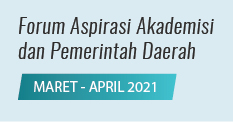 Hardly anyone can deny that our country’s health services constitute our vintage national gold.Primarily, the sick should be the cherished treasure of our country. A nation’s claim to greatness is measured by its ability to nurture a humane civic community. In fact, society is truly human to the extent that it cares for the destitute and the lowly; among whom the sick are the poorest of the poor.
Hardly anyone can deny that our country’s health services constitute our vintage national gold.Primarily, the sick should be the cherished treasure of our country. A nation’s claim to greatness is measured by its ability to nurture a humane civic community. In fact, society is truly human to the extent that it cares for the destitute and the lowly; among whom the sick are the poorest of the poor.
However, in practice, when the market norms encroach on the quality and method of health care, rendering service a business, the health services would be literally feeding our drive for gold.
While society is indebted to those sanitary operators who have replicated the Good Samaritan in their life-giving dedication for the afflicted, others have discovered in the medical field a veritable stream of gold. The past practice which saw the doctor nursing the sick towards full recovery, has sometimes degenerated into an exercise that transforms patients into an economic commodity.
In the words of Prof. Nikolai Attard: “Medical and pharmaceutical disciplines (are) today a multi-million euro business. While acknowledging the role of industry in promoting research, one must also caution against relentless drive in improving its economic profile on the stock market.”
While many countries have devised various models whereby public authority provides an equitable health service for all citizens, it is a known fact that this system is no longer sustainable.
It is not my remit to offer technical solutions to this challenge, but at this stage I feel it is my duty to assume the voice of the poor of our times. My heartfelt appeal to those responsible to address this key issue is that any innovation in the sanitary sector should not add an extra burden on the already downtrodden.
My choice in favour of the poor is not dictated by political or ideological expediency, but by Pope Francis’s startling claim that the poor are Christ’s flesh and, in the words of theologian Leonardo Boff, “the poor are the true representatives of Christ”.
Poverty is on the rise – the writing on the wall cannot be ignored. Brano Milanovic claims that in the past 35 years, the inequality in the Western world has increased by the same margin of the last 300 years.
Indeed, the poor of today are poorer than those of yesterday while the rich of today are richer than those of the day before yesterday.
Even worse is that poverty and inequality have become endemic because they are generated by the system itself. This can enlighten our reform plans for a far-sighted sustainable sanitarty system without oppressing the poorest. It would be shameful if in its attempt to curb public spending, society rations the health services, thus creating a pretext for excessive profit by abusing the system.
As a result of what is called sanitary poverty, a number of citizens, because of economic reasons, are not in a position to avail themselves of adequate cure. Already, in the perpetual struggle against illness, we have reached a precarious situation where a number of families are forced to stretch themselves beyond their meagre means.
This question of sanitary poverty arrests our attention; because in the words of the Italian thinker Salvatore Natoli, the suffering have no time to wait for reforms.
Since in the current circumstances, no State can face this challenge on its own, the time has come to foster a greater awareness that the health question is a community matter requiring the proactive engagement of the public and the private sectors.
Whether or not the health service remains free of charge is a decision which belongs to the State; nonetheless, a timely intervention from the private domain may lower the costs. Not only do we have to ask if the system would be sustainable for the State, but whether it would be sustainble for the citizen.
In order that the human person remains at the centre of any reform I suggest that together with the principle of negotiability, which is at the basis of the welfare state (collecting taxes to provides health services), one endorses the principle of vulnerability. While the principle of negotiability is entrenched in the notion of commulative justice, the principle of vulnerability rests on love (caritas).
In the words of Pope Benedict XVI, if justice is the primary way of charity, then love transcends justice and completes it in the logic of giving and forgiving. Along the years, we have had members of the medical profession who have embraced this principle of gratuity.
If society adopts the vulnerability principle as an operative criterion for the health sector, then this would be a guarantee of social solidarity, even for the weakest who are bereft of any financial means to contribute their share.
In sharing these thoughts I acknowledge the need for a more radical change of our collective social ethos. A society that is bewitched by the market’s seductive pull, risks being anathema in terms of gratuity, the logic of mercy.
For people brought up with a certain mentality bound by rational constructs, replacing the criterion of commulative justice with that of gratuity is not palatable. Yet we should not be discouraged from our endeavour to enhance the basic civic values of humanity which can enrich our country.
source: http://www.timesofmalta.com










